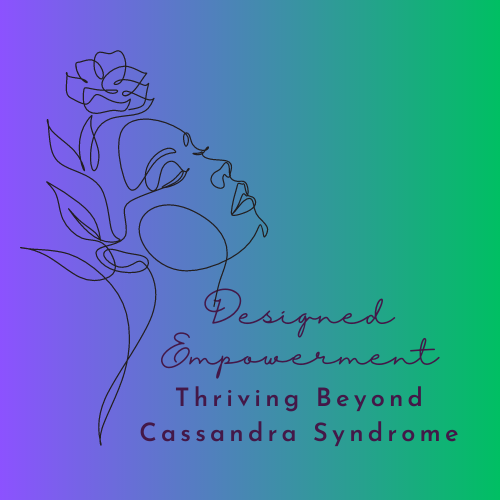CREATING A SAFE SPACE FOR CONNECTION IN NEURODIVERSE RELATIONSHIPS
In the rich tapestry of human connections, neurodiverse relationships are some of the most beautifully complex. As a seasoned therapist deeply rooted in the journey of neurodiversity, I've learned that the cornerstone of a flourishing partnership is the cultivation of a safe, therapeutic space—a sanctuary where open hearts can communicate and grow together.
Why is this so crucial? Because the very essence of connection in a neurodiverse relationship can be fraught with misunderstandings and contrasting perspectives. It’s not just about navigating the love language of your partner; it’s about decoding an entirely different dialect of emotional and cognitive expression.
Let's explore some techniques and exercises that have proven effective in bridging these gaps and fostering a nurturing environment.
Open Communication: The Heartbeat of Connection
Communication in a neurodiverse relationship demands more than mere words; it requires an attuned ear and a willingness to learn a new language—the language of your partner's mind. For the neurodiverse partner, this means engaging in a two-way dialogue that recognizes different communication styles and embraces them as part of the relationship’s unique fabric.
Tools like non-violent communication exercises enable couples to share their thoughts and feelings without fear or judgment. These exercises are particularly beneficial for the neurodiverse partner, as they provide a structured approach to expressing themselves in a way that can be more easily understood by their partner. It's about framing your truth in a way that is respectful and clear, considering both the message and the method of delivery.
For the neurodiverse partner, it’s also vital to develop an awareness of nonverbal cues and to express appreciation for the efforts their allistic partner makes in communication. Acknowledge that misunderstandings can occur and approach them as opportunities for further learning and closeness rather than points of frustration.
It’s about creating a shared language. It's not simply about talking; it's about connecting on a deeper level, where each partner feels seen, heard, and valued for their authentic self.
Reframing Failure: A New Perspective on Learning
In my practice, I often encounter clients who are weighed down by a sense of failure—feeling as though they're constantly mis stepping in their relationship dance. But what if we could reframe these so-called 'failures' as steps towards growth? By reworking the narrative of failure into one of learning and opportunity, we can transform stumbling blocks into steppingstones.
Forgiveness: The Art of Letting Go
Forgiveness within the neurodiverse relationship is an art—a delicate balance of acceptance and understanding. It's a process that allows us to let go of the pain without dismissing the lesson. Together, we work on exercises that help both partners to forgive and move forward, releasing the emotional baggage that hinders their journey.
Managing Depression and Anxiety: The Unseen Guests
Depression and anxiety can be uninvited guests in any relationship, but in the context of neurodiversity, they can take on a different shade. Strategies to manage these feelings are not one-size-fits-all; they are as unique as the individuals themselves. Whether it's through mindfulness practices or cognitive-behavioral approaches, the goal is to provide tools that resonate with both partners, ensuring that these guests don't overstay their welcome.
Creating this sanctuary of understanding and empathy is not an overnight feat. It's a journey—one that I walk hand in hand with my clients, respecting their pace and their process. As we continue to forge pathways of communication and understanding, we find that the most profound connection often blooms in the safety of this shared space.
In the tapestry of neurodiverse relationships, every thread counts, and every color has its place. It’s a masterpiece in progress, and I am here to guide you through every brushstroke.
Remember, your relationship is a work of art, and it deserves the chance to be understood, appreciated, and celebrated.
Here is a To-Do List for Enhancing Open Communication in Your Neurodiverse Relationship:
Schedule Regular Check-Ins: Set aside a specific time each week for you and your partner to touch base on feelings, needs, and desires.
Learn Non-Violent Communication (NVC): Both partners should study the principles of NVC to enhance clarity and compassion in exchanges.
Practice Active Listening: Take turns sharing thoughts while the other partner practices active listening—fully concentrating, understanding, and responding thoughtfully.
Nonverbal Communication Awareness: The neurodiverse partner can practice recognizing and interpreting nonverbal cues with exercises or role-playing.
Express Appreciation: Make a conscious effort to acknowledge and thank your partner for their communication efforts, reinforcing positive interactions.
Create a 'Misunderstanding Protocol': Agree on a plan for how to handle misunderstandings when they arise, including taking a pause if needed.
Attend Communication Workshops: Enroll in workshops or therapy sessions together to learn new communication strategies and strengthen your shared language.
Journaling Reflections: Maintain a personal journal to reflect on communication successes and challenges, and discuss these reflections during your check-ins.
Develop Empathy Skills: Engage in exercises designed to foster empathy, like trying to articulate each other’s perspective before responding.
Celebrate Small Wins: Acknowledge and celebrate moments of successful communication to build confidence and reinforce the value of your efforts.
With warmth and understanding,
Lisa Anzaldua
